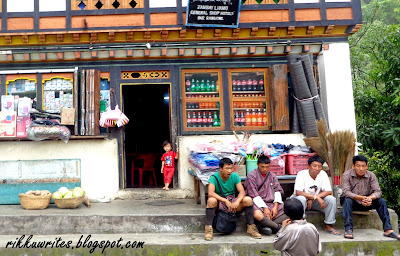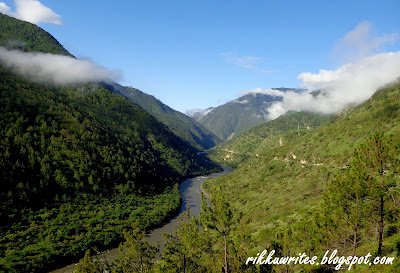If you are traveling to the
Eastern Bhutan, one thing that automatically strikes your mind is the Cliff called
Namling Brak. Located shortly after Sengor on the way to Mongar from Bumthang, it is the
deadliest and wildest cliff of Bhutan. In fact, without passing it you cannot
reach the Sharchop region (unless you travel through India).
At an altitude of 3,000
metres, Namling is usually foggy and is very steep stretch of rocky cliff. Quite
wondrously, the East-West National Highway runs through it, perhaps making it
one of the world’s wildest roads.
Moreover, the road is very
narrow without much roadside protection walls. The moment I look at the cliff
below every hair on me stands up shrieking with fear. And that particular moment,
I always feel the chill of death. You miss a step and you are spot dead. Oh,
that close to death!
Every time I travel here in
the bus, I see a strange behavior among the travelers. The moment we arrive at
the cliff, a complete silence ensues in the bus. The travelers take out their rosary
and pray reverently. Even the drunk people come into consciousness. Seriously. They
start hailing God and conjuring local deities to protect them.
For Bhutanese, Namling is
known as “Death Drop” after the national tragic accident where a passenger bus
fell 300 metres down the cliff in June 1998 and 58 passengers killed. After
that, it has been considered as haunted and ghost-infected place. People have
stories to narrate, of ghost and eerie and frightening incidents; they were
scared and stopped travelling from Namling after 4 pm.
For me, it is the longest
and most frightening 10 minutes drive of my life.
However, after the
horrifying drive, we come to a marvelous waterfall which falls down the cliff. As
soon as the travelers spot the waterfall, they sigh in a huge relief. The waterfall
falls at a stunning height of about 50 metres.
Your fear and agitation
forgotten, you would just run-round in a fury of extreme excitement. It simply is
an awe-inspiring spectacle to sit and watch. For ever, and ever.

































